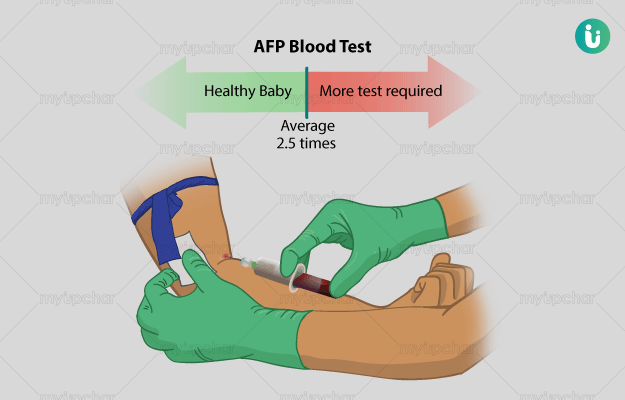What is AFP (Alpha Feto Protein) test?
AFP test stands for alpha-fetoprotein test. Alpha-fetoprotein is synthesised by liver cells in an adult and growing foetus.
In an adult, the levels of AFP in blood are usually undetectable but they tend to rise in the presence of certain types of tumours. Hence, the presence of AFP in the blood of an adult person can be an indication of a developing tumour. Different levels of AFP can be associated with various stages of tumour growth. Therefore, AFP also acts as a tumour marker.
Since AFP is produced by the regenerating cells of liver, a change in its blood levels over time can also be an indication of liver diseases or dysfunction.
AFP produced by foetus keeps on entering maternal blood circulation, its levels increase through the second trimester and reach maximum levels in the mother’s blood. Since an adult originally does not have detectable levels of AFP in their blood, checking its levels in maternal circulation can help diagnose medical conditions associated with increased AFP in foetus.


































